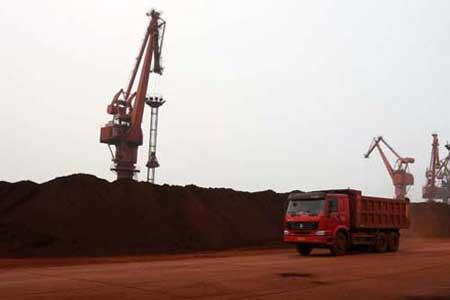
The Ministry of Commerce announced Tuesday the first round of 2011 export quotas for rare earths, standing at 14,446 tons, an 11 percent first-round drop on last year.Photo:Xinhua
The announcement that rare-earth exports would be cut next year points to China's dilemma in the production and trade of the minerals, analysts said.
The 11 percent reduction did not seem deep enough to match the repeated attempts by authorities to regulate the sector and to reduce its environmental impact, experts said.
They suggested that instead, given that the cut was not sufficient to truly impact on foreign buyers of China's rare earths, the world should blow a sigh of relief that the cuts were not worse.
The quota is not aimed at limiting the trade of rare earths, but instead seeks to regulate the sector and reduce its environmental impact, Chen Zhanheng, head of research at the Chinese Society of Rare Earths (CSRE), told the Global Times.
"China wouldn't trade its rare earths for huge economic returns at the risk of environmental degradation," Chen said. "International demand for China's rare-earth resources stands at only 50,000 tons annually, but that China's production of 200,000 tons of rare earths a year makes it necessary for the country to consolidate and regulate the industry."
The Ministry of Commerce announced Tuesday the first round of 2011 export quotas for rare earths, standing at 14,446 tons, an 11 percent first-round drop on last year.
It added that no quota had been set for the full year, and cautioned against predicting the full-year figure based on the quota for the first half.
According to traditional production processes, to produce each ton of rare earth will destroy 200 square meters of land, strip away 300 square meters of meter soil and cause catastrophic soil erosion, the China Business Times reported.
Due to China's large domestic rare-earth reserves, some countries stop exploring their own minerals due to pollution concerns while criticizing China's export reduction.
The US, holding 15 percent of the world's reserves, closed down its last rare-earth mine in 2002 and has ceased domestic exploitation since then, according to the Beijing-based International Business Daily.
The curbs have prompted renewed concerns from Japan, the US and Europe.





